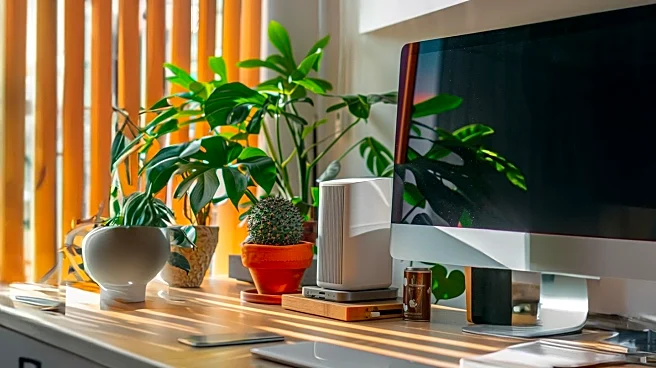What is the story about?
What's Happening?
A recent analysis has identified various indicators within home environments that may reflect deeper mental health struggles. According to the study, clutter, unmade beds, and unfinished projects are among the signs that can suggest a person is experiencing stress or emotional challenges. Psychotherapist Michael J. Formica notes that a person's living space often mirrors their 'global state of mind,' encompassing emotional, social, spiritual, and physical well-being. The study emphasizes that while some signs, such as messy spaces or neglected chores, might be normal for a well-functioning individual, they can also be linked to chronic stress and unhappiness. Additionally, financial strain and food scarcity are highlighted as factors that can exacerbate mental health issues, as seen in homes with empty fridges or stacks of unopened mail.
Why It's Important?
Understanding the connection between home environments and mental health is crucial for addressing broader societal issues related to well-being. The study suggests that seemingly minor aspects of a person's living space can have significant implications for their mental health, potentially affecting productivity and social interactions. This insight is particularly relevant for those working remotely, where the lack of a dedicated workspace can blur the lines between work and personal life, leading to increased stress. Recognizing these signs can help individuals and mental health professionals identify and address underlying issues, promoting better mental health and overall quality of life.
What's Next?
The findings may encourage mental health professionals and individuals to pay closer attention to environmental factors when assessing mental health. There could be an increased focus on creating supportive home environments that foster well-being, such as establishing dedicated workspaces and reducing clutter. Additionally, organizations might consider offering resources or workshops to help individuals manage their home environments effectively, potentially improving mental health outcomes.
Beyond the Headlines
The study raises ethical considerations regarding privacy and the potential for judgment based on home environments. It highlights the importance of approaching these observations with empathy and understanding, rather than criticism. Long-term, this research could influence public policy and workplace practices, advocating for more flexible work arrangements and support systems that consider the impact of home environments on mental health.














